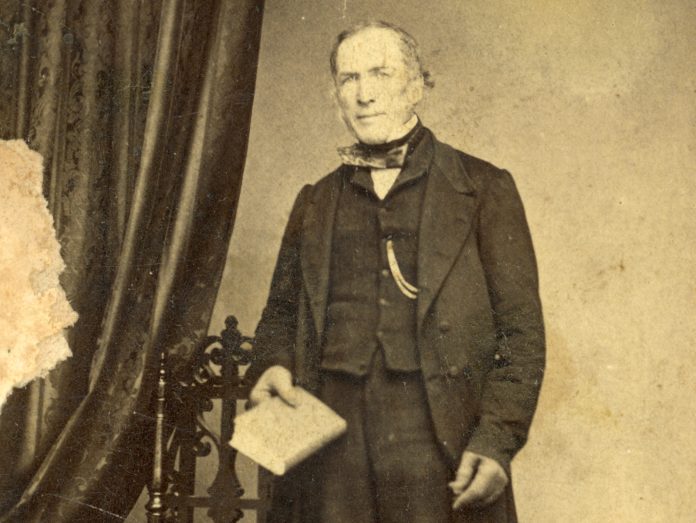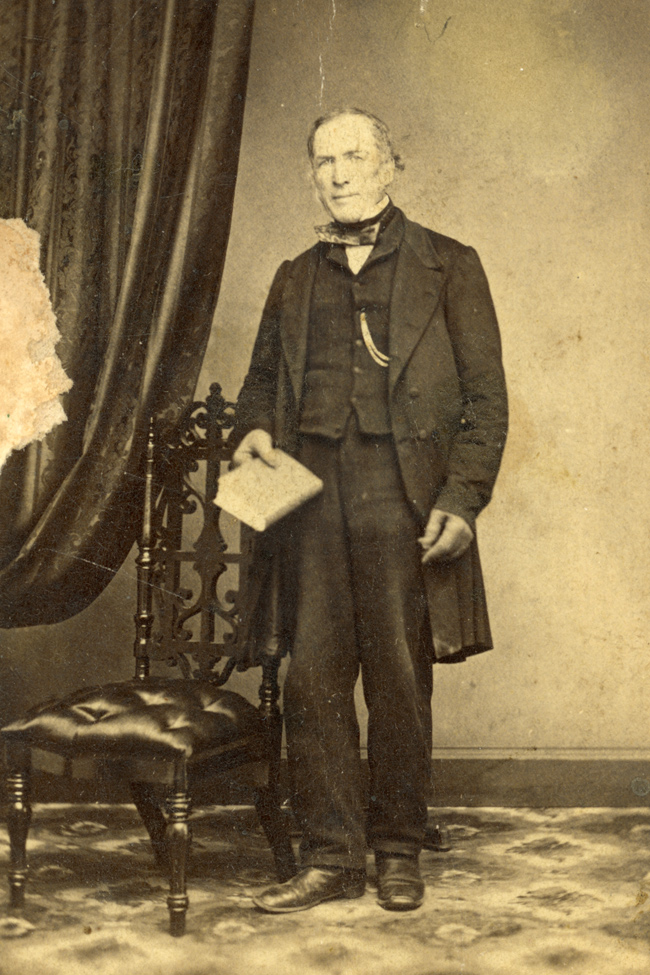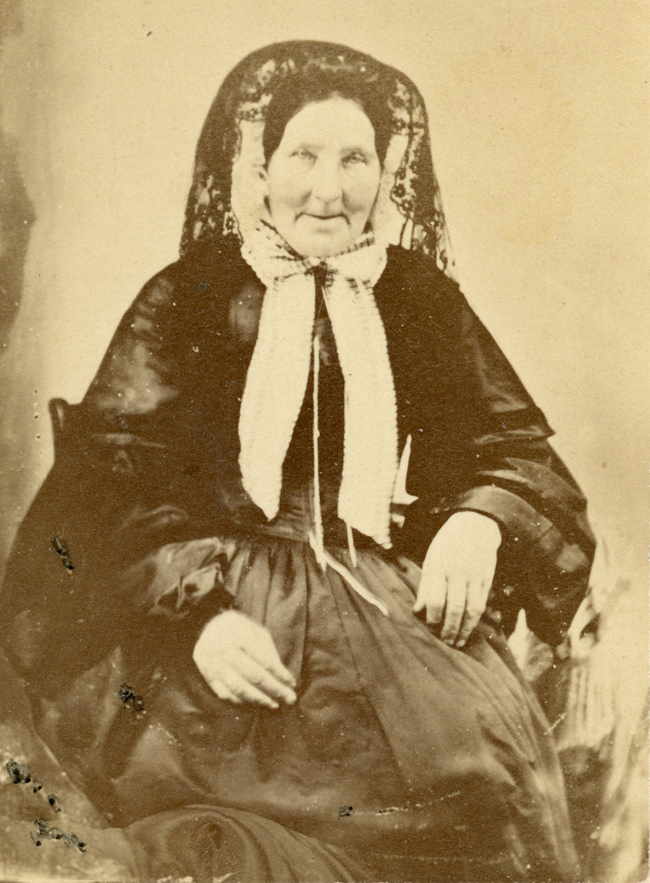By Dave Allston –
Place names are important. Selecting a place name is the first step in creating a community when folks settle in one shared geographical area. Knowing where place names originate is a fascinating part of our shared history. Hintonburg became part of the City of Ottawa in 1907 but Hintonburg – as a place name – is 139 years old. It was back in 1879 that the name was chosen by the residents of a small hamlet along the old Richmond Road in what was then rural Nepean Township. Now cemented as one of central Ottawa’s most unique neighbourhoods, Hintonburg has a long and colourful history, but one story that has largely been left untold is the story of the Hintons themselves. The village’s name honors the family who were true community leaders in its early days but surprisingly, very little has been written about the Hinton family. Until now, photos of the original Hintons have been buried deep in archival collections, mislabeled or not labeled at all.
For a historian, it is a source of pride to be able to finally put a face to the name and tell the story of a family that was almost singlehandedly responsible for the area’s early development. Though the Hintons have a background tied to the village of Richmond, Ontario, their presence in this neighbourhood can largely be traced back to a chance real estate acquisition through family ties.
The story really begins back in 1798, when patriarch Joseph Hinton was born near Waterford, Ireland. While still a newborn, Joseph’s father William was nearly burned in the infamous Scullabogue Barn Outrage (an event during a rebellion in Ireland which saw an uprising against the British establishment, which included Irish protestants like the Hintons). The family’s Catholic maid warned William, and instead it was she who was arrested and burned with over 100 others in a barn, a response to the Brits burning a hospital filled with injured rebels.
Joseph grew up in the bitter aftermath of these events and developed a hatred of the way of life in Ireland and particularly of those involved with the Orange Order, a Protestant fraternal organization. As a teenager, he became President of the Unity Protestant Benevolent Society of Ireland. In 1815, he left Ireland as a stowaway, was discovered on the ship and had to work to earn his passage to Boston Harbour. He was aboard the ship for 14 weeks through terrible weather. He escaped just outside the harbor, when he jumped from the rigging and swam for shore. He befriended some like-minded individuals in Boston and travelled with them to Quebec, where he remained until 1818. That year, he began working as a clerk for the Duke of Richmond, then Governor General of British North America. He was a part of the Duke’s party that travelled up the St. Lawrence and Ottawa Rivers to Richmond Landing at the future LeBreton Flats, and then onwards founding the settlement of Richmond (Joseph being one of the few civilian members of the Duke’s group).
Hinton built a homestead in Richmond at what is now an overgrown field where Fowler Street dead-ends in Richmond and resided here for over 50 years. That house is long gone but aerial photos of Richmond still show a distinct discoloration in the grass where it once stood.
Joseph became Richmond’s first storekeeper, running an important mercantile, while also farming on his own land: “with that degree of industry and perseverance for which he was always distinguished” noted the Ottawa Citizen years later. He later rose to leading positions in public affairs. His list of accomplishments is staggering. He was one of, possibly the first, Justice of the Peace in the County of Carleton, a role he held for over 45 years. In 1849 he was a member of the Grand Jury in Bytown, presiding over the Stony Monday Riot trials. He was also Carleton County’s first Coroner.
He was also involved in seeing Richmond grow. He obtained a grant in 1837 towards construction of a rectory and was credited with leading the opening of the first grammar school in Carleton County in 1854, convincing a visiting renowned Ph.D. scholar to lead the school, which gave Richmond a noted edge on Bytown and other area towns. He was appointed auditor for Richmond’s first municipal council in 1850 and also Superintendent of Highways. For years he was also Superintendent of the Richmond Sunday School, where he was “always a general favourite amongst the children.”
He was elected Reeve in 1855, a position he held nearly continuously until retiring in 1871. This gave him a seat in the county council and for several terms he was elected as Warden of the County. It was in this role that he oversaw the planning and construction of the county gaol which still stands today on Nicholas Street.
The Globe newspaper referred to him as a “man of suave manner” who was well respected for his disposition and character who “constantly set an example worthy of imitation.” According to a grandson: “though himself a total abstainer, he was kind and helpful to less abstentious persons.”
Joseph Hinton married Ann Mills and had four children: Hannah (1826), Maria (1828), Robert Joseph (1831) and Eliza Jane (1833). The three daughters would later marry prominent Ottawa men: Hannah married George Patterson, one of Ottawa’s earliest merchants; Maria married William Pittman Lett, Ottawa’s first City Clerk and well-known poet; and Eliza Jane married Donald Grant, a long-time manager for Hon. Thomas McKay, a respected military man.
Joseph also became interested in real estate prospecting throughout the County, and particularly Nepean Township. One of his earliest acquisitions was in May 1838 when for £50, he purchased the east half of Nepean lot 37 (now the area between Irving and Bayswater, from Scott to Carling) from the man his wife’s sister married, James “Jemmy” Johnston (who was heavily involved with the riotous Shiners’ gangs in early Bytown days). In 1851, Hinton flipped that property to Nicholas Sparks.
A key event occurred after Jemmy Johnston’s death in 1849 that would solidify the future of the township of Hintonburg.
[Read the second part of this series right here.]
Dave Allston is a local historian and the author of a blog called The Kitchissippi Museum. His family has lived in Kitchissippi for six generations. Do you have early memories or photos of Hintonburg? Send your email to stories@kitchissippi.com or leave your comment below.


